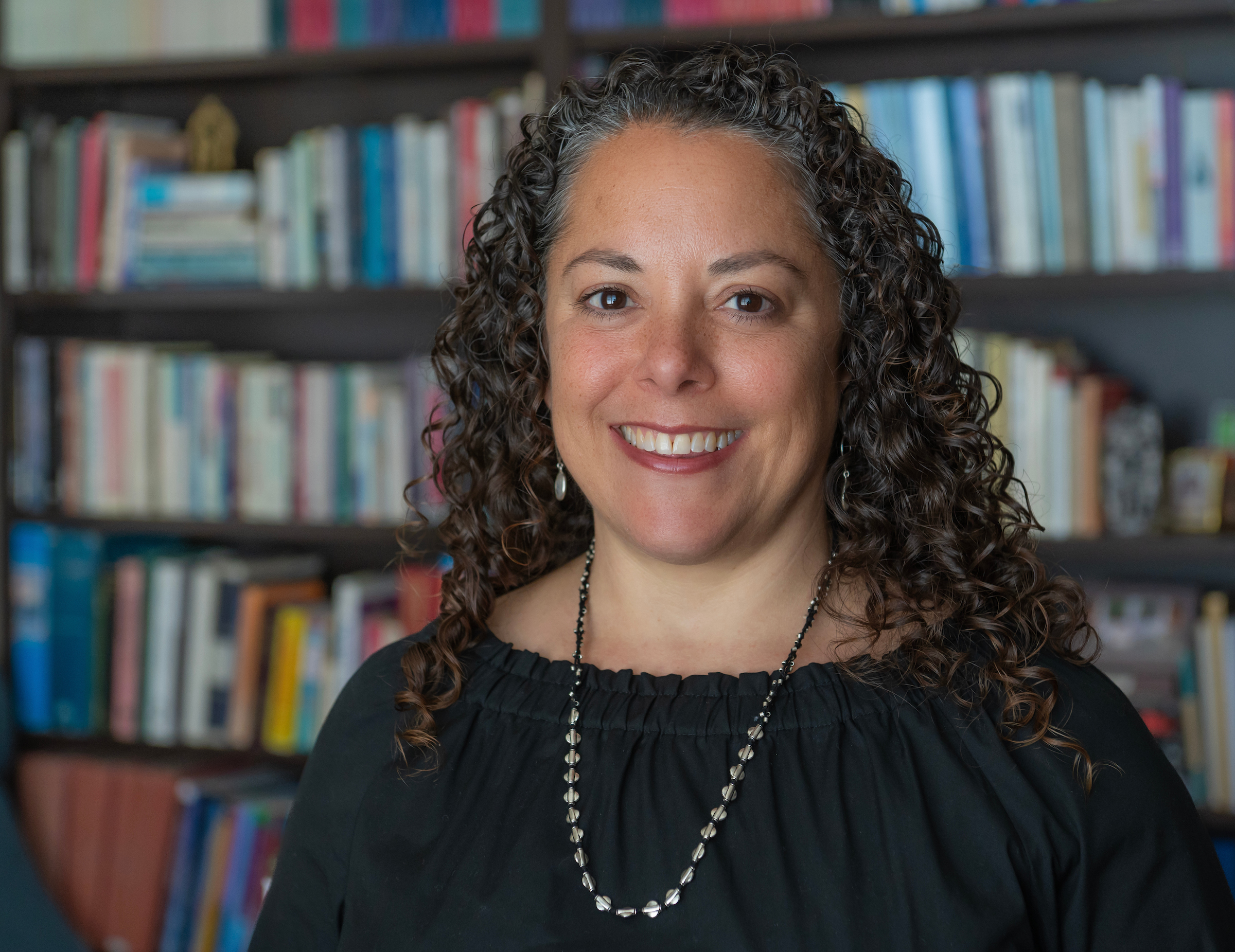Allocco will study in Tamil Nadu, India, beginning in summer 2023, documenting the songs, traditions and art forms created by a family of intergenerational pampaikkārar, drummer-priests. The pampaikkārar are unstudied Hindu musicians and ritual specialists.
Professor of Religious Studies Amy Allocco has been awarded two major research fellowships, including a Fulbright award, to conduct ethnographic research in South India and expand knowledge of an unstudied class of Hindu artists and priests.
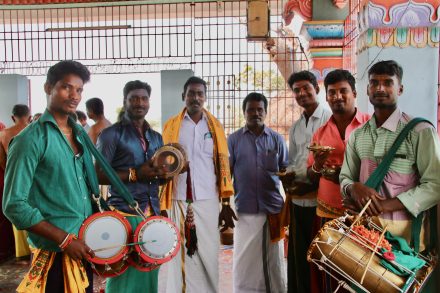
Allocco will spend eight months in Tamil Nadu, India, in 2023-24 completing an ethnographic study of three generations of Hindu drummer-priests, called pampaikkārar, who lead important religious and cultural rituals, including family rites, domestic ceremonies, and temple festivals. Allocco’s work with the family will explore the creation, transmission and refashioning of their musical and ritual repertoires with attention to how they are changing in modern times and what the practice reveals about shifts in religious sentiments, aesthetic preferences, and social and economic conditions.
Allocco was awarded a Fulbright-Nehru Academic and Professional Excellence Fellowship through the U.S. Department of State and the Fulbright Foreign Scholarship Board, as well as a senior fellowship from the American Institute of Indian Studies, to undertake this cutting-edge research project beginning this summer. She is one of around 800 U.S. citizens who will teach or conduct research abroad through the Fulbright U.S. Scholar Program in 2023-24.
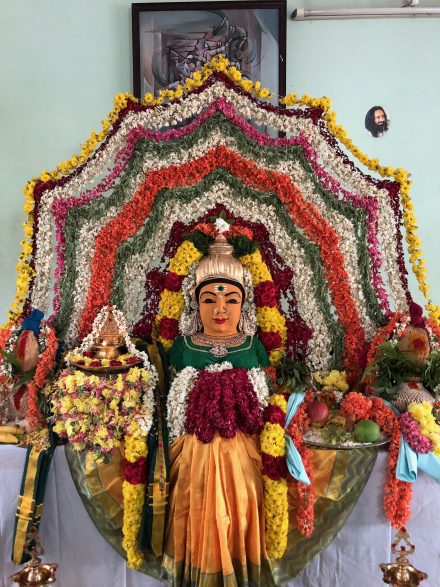
“The distinctive and important place that pampaikkārar occupy in the devotional culture of many non-elite Tamil castes compels us to broaden our register of Hindu ritual authorities to include this expert class of specialists,” Allocco said. “These artists have never been the subject of a full-length study. Although they are both the ritual musicians and the ritual priests in these contexts, we know almost nothing about these complementary roles. I would be bringing them into the literature so they can be featured in a more inclusive accounting of who the ritual specialists in Hindu traditions are.”
Allocco is an anthropologist of religion whose research focuses on vernacular Hinduism, especially contemporary Hindu ritual and religious practices in Tamil Nadu, where she has carried out extensive fieldwork since studying abroad there in 1995.
Allocco first encountered the family troupe of pampaikkārar in 2015, during a first Fulbright-sponsored study. Impressed by their virtuosic playing and the distinct decorative style of their ritual displays, she connected with and began following them as they traveled and led rituals in the region.
Though they perform other rituals around weddings, births and other events, in her previous research project Allocco was most interested in documenting the folk ritual of calling the dead. Families and communities participating ask their loved ones to return in the form of household deities. The pampaikkārar play songs and create and decorate elaborate vessels throughout the rituals, which last several days.
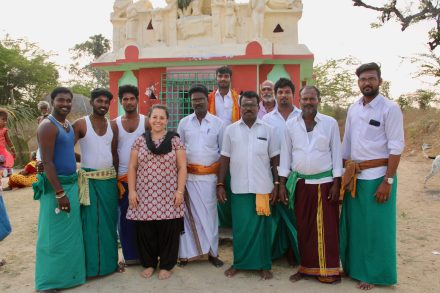
Now, Allocco wants to focus on the drummer-priests themselves, focusing on the ways that their musical and ritual roles are intertwined. “I want to record their stories, storytelling and songs and plan to deposit digital resources with the American Institute of Indian Studies’ Archives and Research Center for Ethnomusicology so that these cultural heritage materials will be accessible to Indian and international scholars and preserved for future generations,” Allocco said.
She will also study how the songs, artistry and rites are transmitted intergenerationally and among pampaikkārar. The practices aren’t written down and, after seeing the family’s patriarch pull troupe members aside to teach and refine skills, Allocco became interested in their pedagogies and emphasis on intergenerational learning. The family Allocco will study wants the artform to thrive and also teaches skills and techniques to other drummer-priests. Younger generations of the family are using technology and social media to advertise and promote the artform.
“They are an interesting family on their own. They are very traditional in certain respects, such as transmitting their craft, but they are open to innovation and collaboration. They are a delight to learn from,” Allocco said. “What sets them apart is their raw talent, ritual skill and musical virtuosity.”
This summer, Multifaith Scholar Daniel Scheff ’24 will complete a separate research project alongside Allocco in South India through the Summer Undergraduate Research Experience. Scheff’s project focuses on a ninth-century Hindu religious figure and poet-saint, Andal, and how her compositions and biography influence models of acceptable womanhood in colonial and post-colonial India.
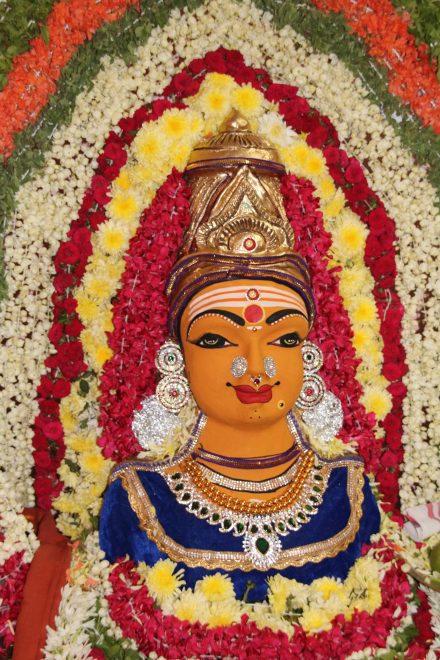
Allocco will also reconnect with Anya Fresell ’18, a former Lumen Scholar now enrolled in a doctoral program of Emory University’s Graduate Division of Religion, for a joint ethnographic project to map and study the development of a network of Hindu, Muslim and Christian shrines and religious sites in a multireligious neighborhood in south Chennai.
Allocco joined Elon faculty in 2009 after completing her doctorate in the West and South Asian Religions program in the Graduate Division of Religion at Emory University. She holds a Master of Theological Studies degree from Harvard Divinity School and a bachelor’s degree from Colgate University. She is the founding director of Elon’s Multifaith Scholars Program, the 2019 recipient of the university’s Ward Family Excellence in Mentoring Award and Elon College, the College of Arts and Sciences awards for Excellence in Scholarship in 2021 and Excellence in Teaching in 2012.



